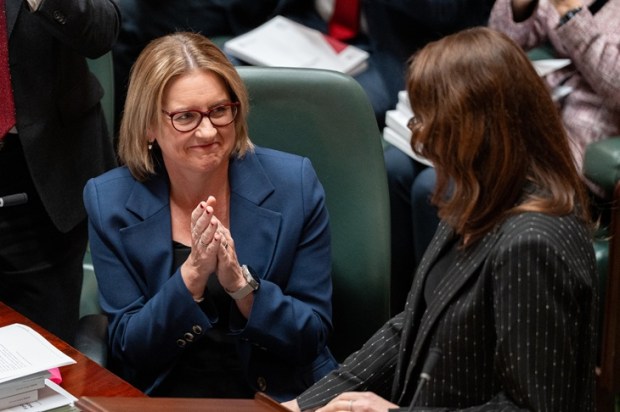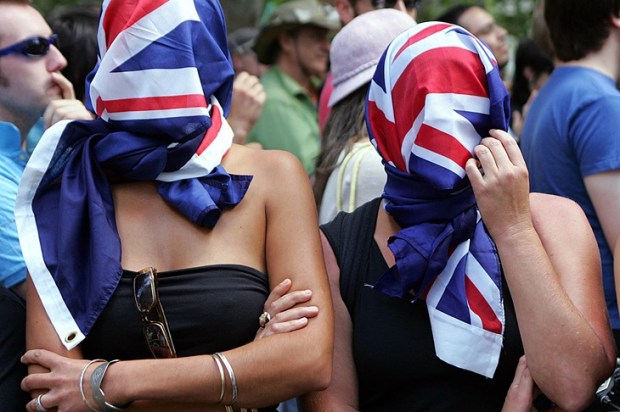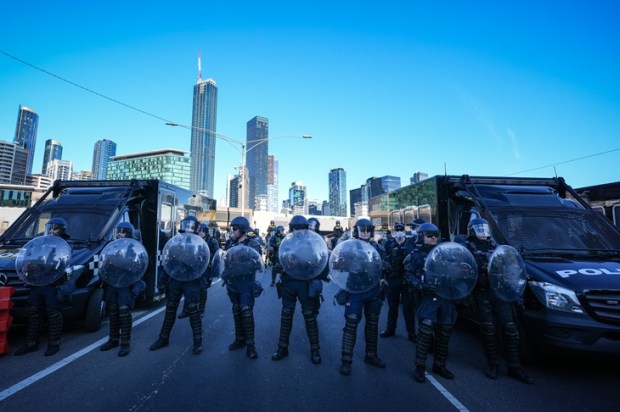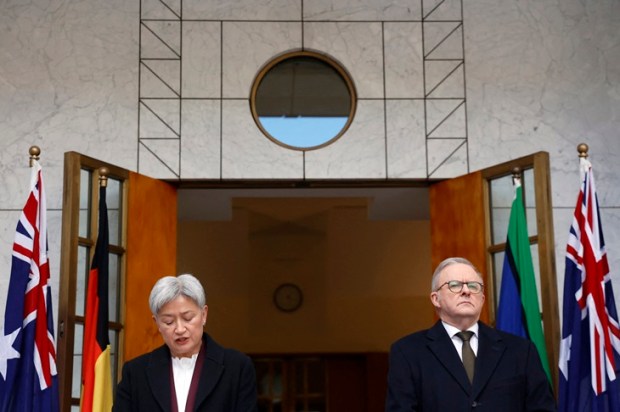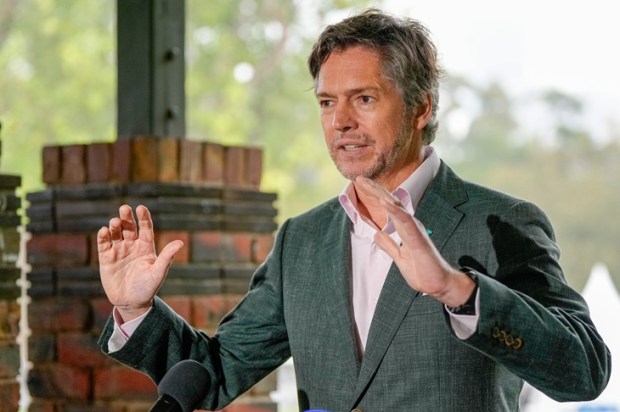After softening Victoria’s bail laws in a misguided fit of compassion that saw crime rates soar and victims pile up, Premier Jacinta Allan was forced to stumble backwards and introduce the ‘toughest bail laws in Australia’.
It was an impressive, Olympic-qualifying backflip.
‘These new laws will jolt the system,’ said the press release. ‘Starting immediately, community safety will come first on all bail decisions … it will also no longer be necessary to consider remand as a last resort for a child.’
And by ‘child’ we are not talking about innocent cherubs but rather violent, brazen, and repeat offenders who commit serious offences.
The Tough Bail Laws will uplift serious high-harm offences like aggravated burglary, home invasion, carjacking, and armed robbery to the toughest bail test, so bail is less likely even on the first charge … we are ensuring that offences like serious gun and arson offences, and other knife and weapon offences like machete violence will be subject to a presumption against bail.
The Premier said that she has ‘listened to the victims of crime’, or perhaps been embarrassed by media headlines and non-stop outrage from local communities who feel as if they are fighting a war in their once-sleepy suburbs.
What are these headlines, you may ask? Here are a few from the Daily Mail.
How youth crime has exploded out of control in Premier’s home town as eshay teen thugs brag on social media that they’ll be “bailed in 90 minutes”.
This article included stories of nightly crime by children aged between 10 and 17. ‘Angry locals have taken to social media to voice their fury about weak laws which saw one 15-year-old offender bailed 55 times only to be released and offended again.’ On that occasion, the story continues, ‘…a series of offences which culminated in a terrifying home invasion with another teen, 17, in which they allegedly bashed a man in the head with a hammer.’
The culture of being ‘soft on crime’, popularised by the activist-Left as a ‘kindness’ has allowed horrifying numbers of young children to be enticed into gangs where their criminal behaviour is rewarded with ill-gotten gains or ignored by the justice system.
This tragic cycle has been repeated in Queensland where going soft on crime created a crisis and ultimately, a change in government.
How does allowing a child to continue a life of crime with a slap on the wrist help them in the long run? It doesn’t.
In any case, the victims are owed justice and Victorians deserve to live in safety. If this does not happen, why should anyone follow the law?
Another damaging headline read, Shocking reality of Victoria’s record crime crisis is revealed with 200 arrests EVERY DAY.
Describing crime levels as their ‘highest ever’ in the state, the article says there have been 605,640 offences in 2024, or 1,659 per day.
A further breakdown shows the prevalence of re-offence (that’s if the police make an arrest at all, which they often fail to do). The article says, ‘Victoria Police arrested 26,519 people 73,539 times in 2024.’
This isn’t crime, it’s a culture of crime.
Attempting to blame cost of living pressures for the crime surge is a nonsense and insulting to other citizens who are making sacrifices while staying within the law. Besides, the type of crime we are seeing has more to do with entitlement and online fame than poverty.
Victorians did not wake up one day and decide to become criminals.
The state has been poor before. Australians have been poor before. Criminality on this level suggests that these children and teenagers commit crimes because they enjoy it, because they are rewarded with free stuff, and because they gain acceptance with their peers. To be frank, it’s become cool.
Enforcing strict punishments on criminals, regardless of their age, has been an effective means of restoring order since humans began keeping records. Crime is a risk-reward calculation that even kids can understand. Punishing them severely and early will save the vast majority from a lifetime of failure. If their parents have been unsuccessful then it is the state’s job to assert order. A child is far less likely to break into someone’s home if they know there’s a good chance a jail cell is waiting for them.
Of course, the Human Rights Law Centre is complaining, along with the Federation of Community Legal Services Victoria, the Flat Out advocacy service, and finally, the Aboriginal Legal Service. This group issued a joint statement chastising the Premier for her bail laws.
The Allan government has today rammed through dangerous and discriminatory bail laws which will deeply harm Aboriginal and Torres Strait Islander communities and breach human rights.
The laws have been condemned by 93 Aboriginal, human rights, community, family violence, and legal organisations, and will needlessly lock away more people – particularly Aboriginal women and children experiencing poverty, family violence, and mental illness – before trial or sentencing.
Let them condemn the laws. These organisations should be ignored. The sentiment expressed in their opinion is a failed ideology that harms the very groups they express concern toward.
Despite what they claim, there is nothing discriminatory about the Bill. It is aimed at those who commit very serious offences, repeatedly. These are people who victimise innocent citizens, terrorise communities, and endanger lives. They are people who destroy property, and selfishly wreck what little people have left in a cost of living crisis.
If only we had human rights groups who spoke up for the protection of quiet, law-abiding citizens.
As to their main claim, we may ask, how does protecting criminals help Aboriginal and Torres Strait Islander communities? If people within those communities are engaging in criminal behaviour, they should be locked up like everyone else and in doing so, those communities become safer. The scales of personal responsibility have been tipped too far, leaving drug addicts, thieves, and criminals who engage in crime to fund their habits painted as vulnerable victims. It is a vision that I reject, as do most people who come face-to-face with these perpetrators during a crime spree.
In addition, race should not be used as an excuse to mitigate responsibility. Mentioning race in these conversations feeds into the perception that Australia is teetering on the edge of a two-tier justice system.
In this country, we believe in equality under the law and personal responsibility. People commit crimes as individuals, not as racial groups, and those offenders should be treated the same.
The people who do the right thing are the most disadvantaged.
They give everything, get nothing, and become the victims of an untouchable class of criminals.
Perhaps the most astonishing comment from these human rights groups was this: ‘…[the Premier has] capitulated to the tabloid media to entrench dangerous bail laws that undermine people’s right to liberty.’
Innocent people have a right to liberty. Criminals do not.
It is time to become unapologetically tough on crime.
Flat White is written by Alexandra Marshall. If you would like to support her work, shout her a coffee over at donor-box.



